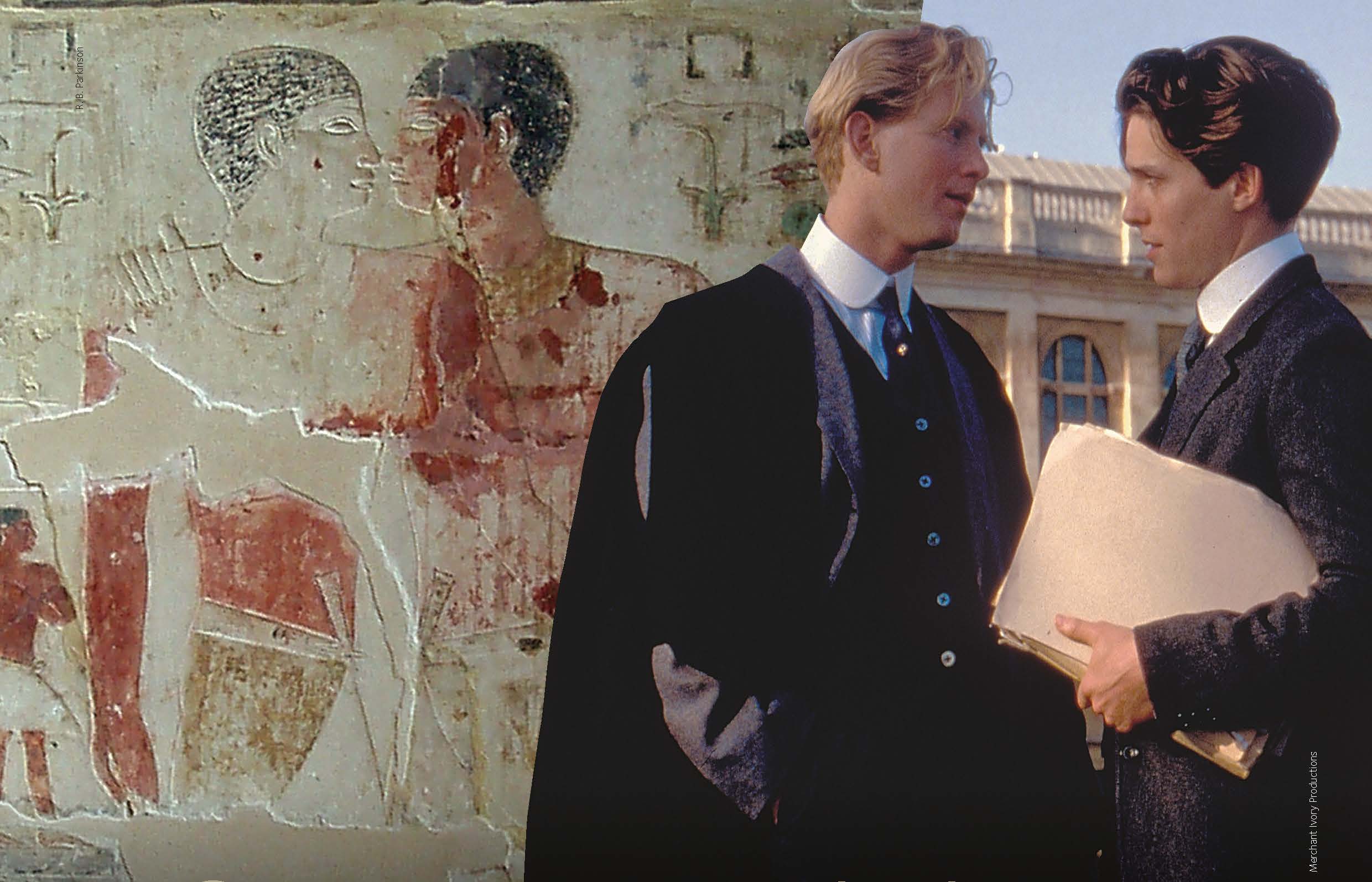Richard Parkinson, Professor of Egyptology at Oxford University, gave the annual LGBT History Month Lecture last week, introduced by the Vice-Chancellor Professor Louise Richardson. He spoke on LGBT heritage in world cultures, which he has researched for his book, A Little Gay History.
'I myself am not a historian of sexuality, just a gay Egyptologist who specialises in Middle Kingdom literature from the eighteenth and nineteenth centuries BC,' he says.
'This is not even the glamorous world of archaeology, still less of Indiana Jones, so Ancient Egyptian philology is not often thought about in terms of sex.
'But Egyptian poetry can be queer in some quite obvious ways. Perhaps the earliest known chat-up line in human history is one between two males that is preserved in these poems, where the god Seth says to Horus "what a lovely backside you have".'
But he argues interpretation is always contingent on context, as demonstrated in the controversy over the "first gay kiss". An Old Kingdom tomb near Cairo, which dates to roughly 2450 BC, is shared by two courtiers who are shown embracing.
'This has been interpreted as a socially sanctioned same-sex partnership,' says Professor Parkinson. 'Contextual evidence suggests that the two men are almost certainly twins, but the tomb nevertheless features prominently in many popular LGBT campaigns and histories, and they have become the poster-boys of academic queer archaeology.
'It is always very tempting to favour readings against the grain that support our concerns, but a single overly partisan account can mean that all LGBT readings of history are dismissed as "special pleading", and research on such topics has to be irrefutably accurate or it risks provoking a backward step.
'Given the fragile nature of LGBT rights in many parts of the world, such historical interpretation is not a purely "academic" matter.'
Professor Parkinson went on to reflect on the process of researching A Little Gay History, which brought together objects from the British Museum’s collections, exploring same-sex desire, romance and domesticity in world history. It features artefacts from every continent and thousands of years to present an accessible account of same-sex desire in world history.
'Giving the lecture was a great honour,' he says. 'I think it’s colossally important to show people that academic institutions support equality and diversity.'
'I'm particularly happy that many colleges, including mine, now fly the rainbow flag regularly. Such public gestures are hugely important in our fight for equality.
'The fact that Oxford University celebrates diversity in its staff and students, and does so publicly, was a significant factor in my decision to return to the Oxford after twenty years as a curator in the British Museum.'
A Little Gay History is available from the British Museum Press. A podcast of the lecture is also available.
